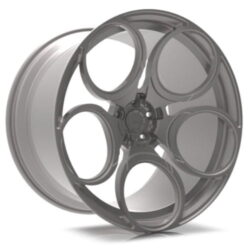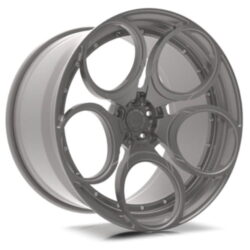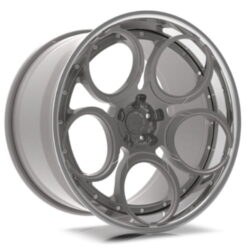ABOUT WHEELS
When you upgrade wheels, you’re not only changing the look of the car - you’re also changing how it drives, how it feels, and how strong the setup is in real-world use.
Below we break down the main wheel construction types. The differences between cast and forged wheels, what 1-, 2- and 3-piece wheels mean, and how carbon barrels fit into modern wheel technology.
Cast Wheels
Cast wheels are manufactured by pouring molten aluminium into moulds, letting it cool and solidify, and then machining the final design.
Key Characteristics:
• More affordable
• Wide variety of styles
• Good for daily driving
Things to Consider:
• Heavier construction
• Material is less dense
• Can crack under strong impact
Cast wheels are a good choice for everyday cars, but they involve compromises in strength and weight.
Forged Wheels
Forged wheels start from a solid billet block. The aluminium is forged to strengthen the grain structure, then CNC-machined into the final shape.
Key Characteristics:
• Stronger, denser material
• Lighter weight
• Better impact resistance
• Precision machining
Things to Consider:
• Higher price
• Longer production time
For performance cars, heavy SUVs, tuned builds or enthusiasts who want the best — forged wheels are the clear choice.
“Cast wheels are like a quartz watch - reliable and functional.
Forged wheels are like a hand-built Swiss timepiece - crafted with precision, engineered for performance, and made to last.”
Why Wheel Weight & Strength Matter
- Weight: Wheels are part of unsprung and rotating mass. Lighter wheels help the car accelerate, brake and change direction more easily. The suspension also works better, steering feels sharper, and the car loses less energy.
- Strength: Wheels must survive potholes, bumps, side loads in corners and impacts. Stronger wheels are safer and last longer, especially with low-profile tyres or bad roads.
- Stiffness: A stiff wheel keeps the tyre contact patch more stable, which improves grip, feedback and handling.
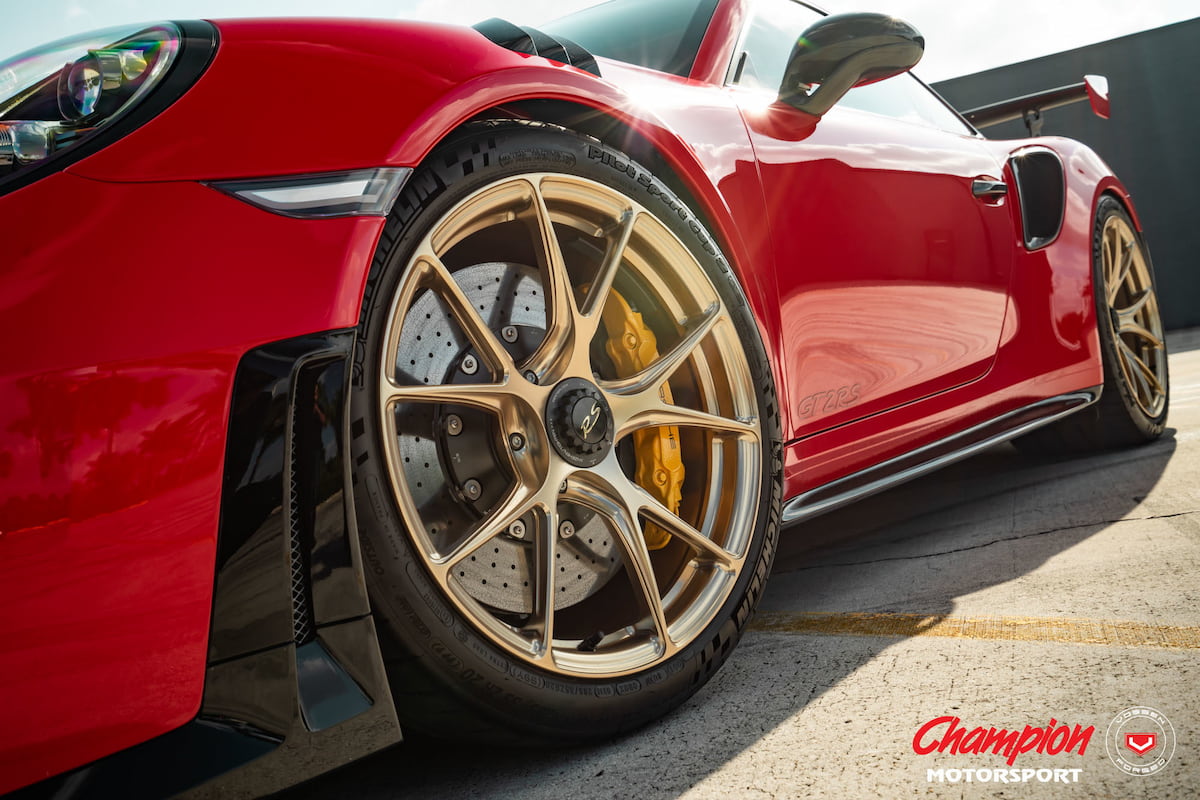
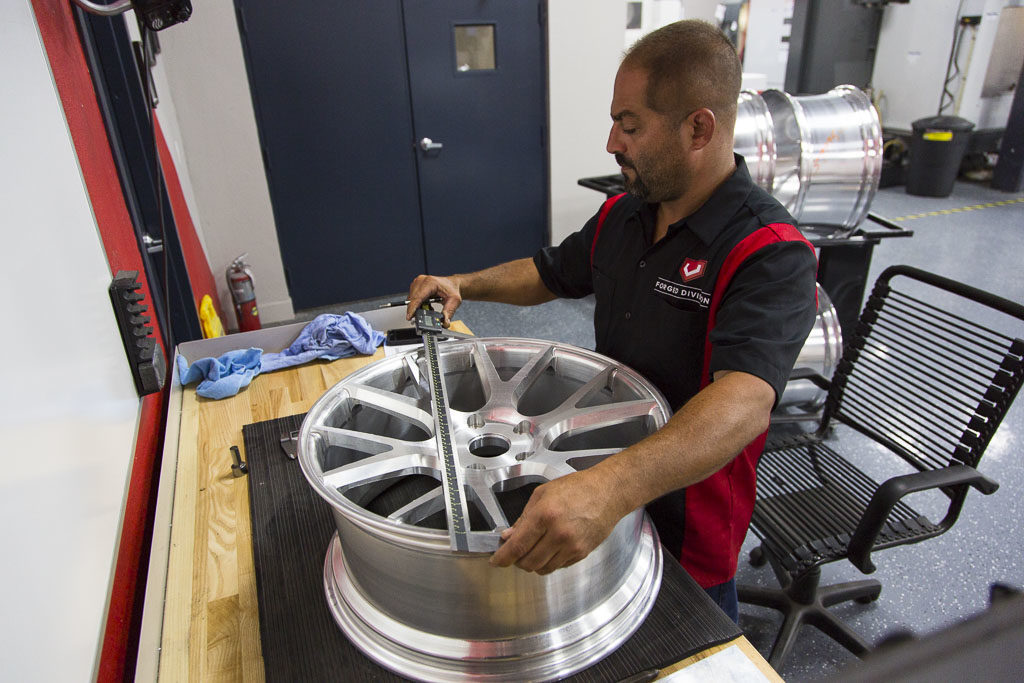
Wheel Technical Specifications
When choosing wheels, most people look first at design, but the technical specifications are what determine fitment, performance, safety and overall driving feel.
Below are the key measurements that define a wheel.
• Diameter – the wheel size in inches (e.g. 20”).
• Width – the distance from inner to outer barrel (e.g. 10.5”).
• Offset (ET) – how far the mounting surface sits from the wheel’s centreline (e.g. ET35).
• Center Bore – the size of the hole in the center of the wheel that sits on the hub (e.g. 66.6 mm).
• Bolt Pattern (PCD) – the number of bolt holes and the diameter of the circle they form (e.g. 5×112).
• Weight – the mass of the wheel (e.g. 10 kg).
These measurements determine how the wheel fits the car, how it clears the brakes and suspension, and how it performs on the road.
Importance of Wheel Weight, Strength & Stiffness
There is a lot of talk about wheel weight, strength and stiffness — but why do these things actually matter?
To understand it, let’s start with weight and rotational inertia. A car accelerates, brakes and turns by constantly changing the speed and direction of the wheels. The heavier the wheel is, the more rotational inertia it has - which means the car must use more energy to spin it, stop it or change its direction. A lighter wheel has much lower rotational inertia, so the car reacts faster, the steering feels sharper, and less power is wasted simply trying to move heavy rotating mass.
Wheels are also a major part of what’s called unsprung mass - everything that sits below the suspension, like wheels, tires and brakes. When the wheel hits a bump, a heavy wheel wants to move upward and lose contact with the road. A lighter wheel allows the suspension to push the tire back down more quickly, keeping the contact patch stable. This is critical for grip, stability and overall handling, especially on uneven or bumpy roads.
Strength and stiffness play an equally important role. Real roads are full of potholes, sharp edges and unexpected impacts. A wheel must be able to absorb these forces without failing. Poor-quality cast wheels can crack or even shatter when hitting a sharp pothole at speed. Forged wheels, thanks to their denser grain structure and higher material integrity, are far more resistant. In extreme situations, a forged wheel usually bends instead of breaking, which means the tyre stays sealed and keeps air. That makes forged wheels not only stronger, but also safer in real-world driving.
This combination of lower rotational inertia, reduced unsprung mass and superior material strength is exactly why forged wheels deliver better performance, better road feel and better durability than cast alternatives.
Forged Wheel Construction Types
Engineering Differences Between 1-Piece, 2-Piece & 3-Piece Forged Wheels
Characteristics:
• Lightest and strongest construction
• No bolts or sealing
• Ideal for performance and daily driving
• Limited by single-piece geometry in terms of lip depth
Monoblock wheels offer maximum performance and structural purity.
Characteristics:
• More flexibility in concavity and lip depth
• Easier offset adjustments
• Slightly heavier than monoblocks
• Clean hybrid look between 1-piece and 3-piece designs.
2-piece wheels balance performance with added styling freedom.
Characteristics:
• Maximum customization in width, offset, lip size and construction
• Popular for aggressive fitments and widebody cars
• Slightly heavier and has more components
• Classic multi-piece visual style
3-piece wheels are the top choice for custom and highly individual builds
2-Piece Carbon Wheels
High-end forged wheel manufacturers such as Vossen and HRE offer advanced 2-piece wheels that combine a forged aluminium centre with a lightweight carbon fibre barrel. This construction is designed for maximum performance, reduced rotational mass and an unmistakably exotic appearance.
Carbon barrels are extremely light, and because most of a wheel’s rotating mass sits at the outer edge (furthest from the axis of rotation), reducing weight in this area has a dramatic effect on rotational inertia. The forged spokes sit closer to the hub, while the carbon barrel, which spins at the largest radius, is incredibly light. This results in noticeably faster acceleration, sharper braking response and a more agile, precise driving feel.
Benefits
• Extremely low rotating mass
• Reduced rotational inertia due to lightweight outer barrel
• High strength-to-weight ratio
• Sharper acceleration and braking performance
• Exotic, motorsport-inspired appearance
Considerations
• Higher price point compared to aluminium wheels
• More limited size and application availability
• Carbon fibre requires additional care, especially during tyre mounting
• Carbon barrels can crack under severe impact
Carbon 2-piece wheels are typically chosen for high-end performance cars and premium projects where weight reduction, exclusivity and craftsmanship are key priorities.
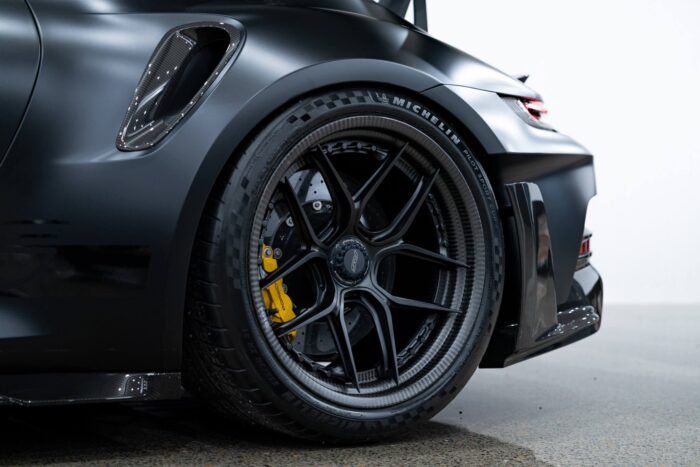
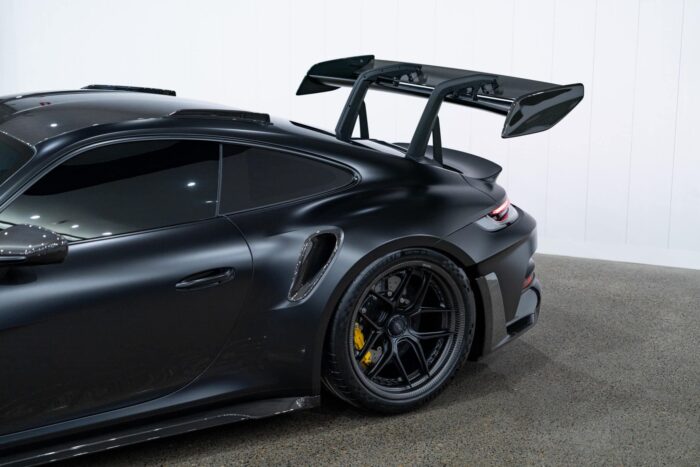
Choosing the Right Wheel Setup
Wheel Fitment: Why Proper Sizing Matters?
Good wheel fitment is more than just choosing the right diameter. Width, offset, tyre profile and brake clearance all determine how the wheel sits and how the car behaves. A correct setup avoids rubbing, maintains proper steering feel and ensures the wheel clears brakes and suspension safely.
Because every car and wheel model is different, professional fitment calculation is essential. We analyse your brake size, suspension, ride height and desired look to select the exact width and offset that fits perfectly and performs correctly.
Why Premium Forged Wheels Cost More?
Forged wheels cost more because they start from aerospace-grade aluminium. It gets compressed under extreme force, creating a dense and incredibly strong structure. Each wheel is CNC-machined with tight tolerances, inspected, load-tested and hand-finished.
Brands like HRE and Vossen invest heavily in precision engineering, materials and craftsmanship. The result is a wheel that is lighter, stronger, longer-lasting and fully customisable in size, offset and finish - a level of quality cast wheels simply cannot match.
Conclusion: Choosing the Right Wheels for Your Car
Upgrading wheels is more than a visual change, it influences performance, handling, comfort and safety. Cast wheels work well for everyday driving and offer a wide range of styles at an accessible price point. Forged wheels are the choice for enthusiasts, luxury-car owners and performance builds who value superior strength, lower weight, precise fitment and high-end craftsmanship.
Whether you prefer 1-piece, 2-piece, 3-piece or carbon-barrel wheels, each construction has its purpose and personality. What matters most is choosing the right option for your vehicle, your driving style and your expectations. A perfectly selected wheel setup can transform how a car feels on the road.
At forged.ee, we guide you through the entire process, from fitment analysis to finish selection, ensuring your wheels not only look exceptional but perform flawlessly. If you are unsure where to begin, simply get in touch. We are here to help you find the ideal configuration for your build.

